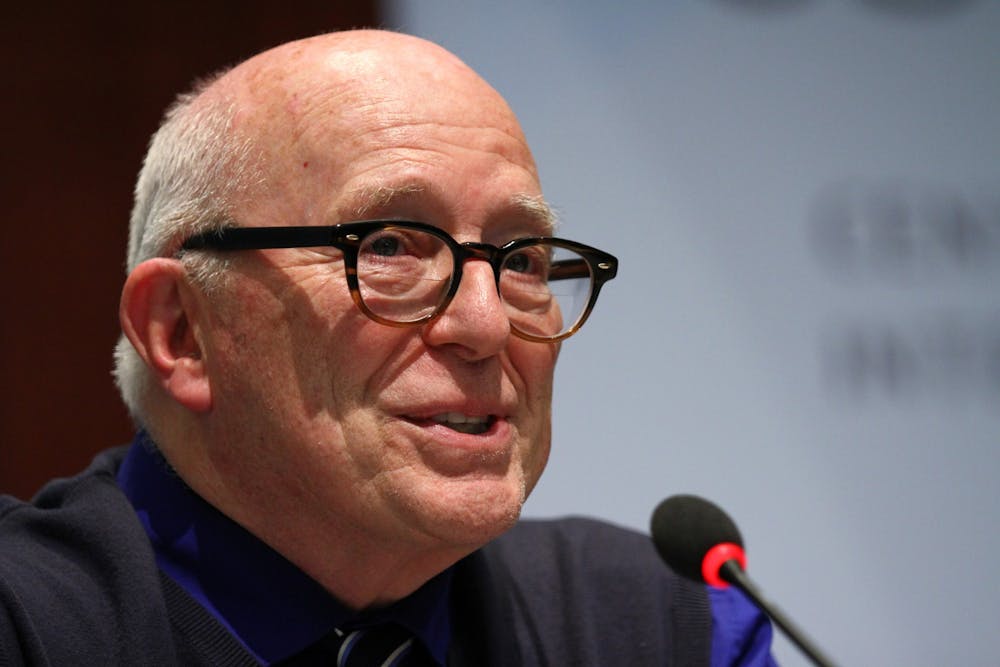Former American University President Joseph Duffey, who served from 1991 to 1993, died Feb. 25 at his home in a D.C. retirement community after suffering from an illness, according to his son, Michael. He was 88 years old.
Serving as president of AU was one of his many leadership roles in education and politics. He previously served as the chancellor of the University of Massachusetts Amherst and president of the University of Massachusetts system. He dedicated over 50 years to the field of education.
“Joe came to American University during a time of great excitement in the early 1990s as we prepared to celebrate our university’s centennial,” President Sylvia Burwell wrote in an email to the AU community. “It was Joe who was responsible for helping to bring President Bill Clinton to campus in 1993 for what would be the first of three visits from President Clinton during his administration, and Joe helped to shine a spotlight on AU at that critical time.”
Born in West Virginia in 1932, Duffey was an anti-war activist who organized Freedom Rides for civil rights in the South and protests against the Vietnam War, according to The New York Times.
Duffey ran for U.S. Senate in 1970 as a Democrat in Connecticut but lost to Republican Lowell Weicker. Despite this loss, Duffey’s Senate race gave him national recognition as a prominent anti-war activist. He later went on to serve in the Jimmy Carter and Clinton administrations, where he dedicated much of his work to the humanities. He served for five years as the chairman of the National Endowment for the Humanities.
The agency’s Acting Chairman Adam Wolfson said Duffey wholeheartedly believed that the humanities could impact Americans, no matter their backgrounds. Duffey also worked to raise the number of grants awarded to people of color and expressed his support for social history.
“Duffey was a great friend of the humanities,” Wolfson said. “He believed not only in the power of ideas but in the power of all Americans to take part in a broad culture made rich and stimulating through humanistic influence.”





